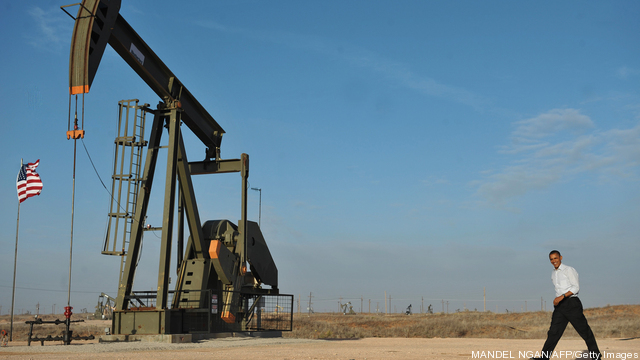The concept of the United States being energy independent has been around for decades, with the past 8 US presidents calling for it and even suggesting dates by when it might be achieved. However, the recent ramp up in domestic oil and gas production has drastically reduced oil imports and rejuvenated the discussion, with some believing the long sought-after goal could finally be around the corner.
Some have suggested that North American energy independence – including petroleum exports – is a more realistic pursuit. Others maintain energy security is what really matters and that it’s impossible and even undesirable to disconnect the US from the global oil market. Keep reading →


 Shell Oil President and Director Marvin Odum speaks during a plenary session on the first day of the Energy Information Administration energy conference April 26, 2011 in Washington, DC.
Shell Oil President and Director Marvin Odum speaks during a plenary session on the first day of the Energy Information Administration energy conference April 26, 2011 in Washington, DC.



What Should the US Energy Industry Expect Under a Second Obama Administration?
By Jared AndersonNow that the votes are in and media attention has shifted from a contentious US presidential election to the looming fiscal cliff, energy companies in the oil and gas space as well as wind, solar and other sectors are keeping a sharp eye on what the next four years of energy policy might look like.
The regulatory requirements associated with developing oil and gas on federal lands became a polarizing issue during the election, with republicans claiming the process is too strict, overly burdensome and impedes companies from producing resources vital to the US economy. Keep reading →